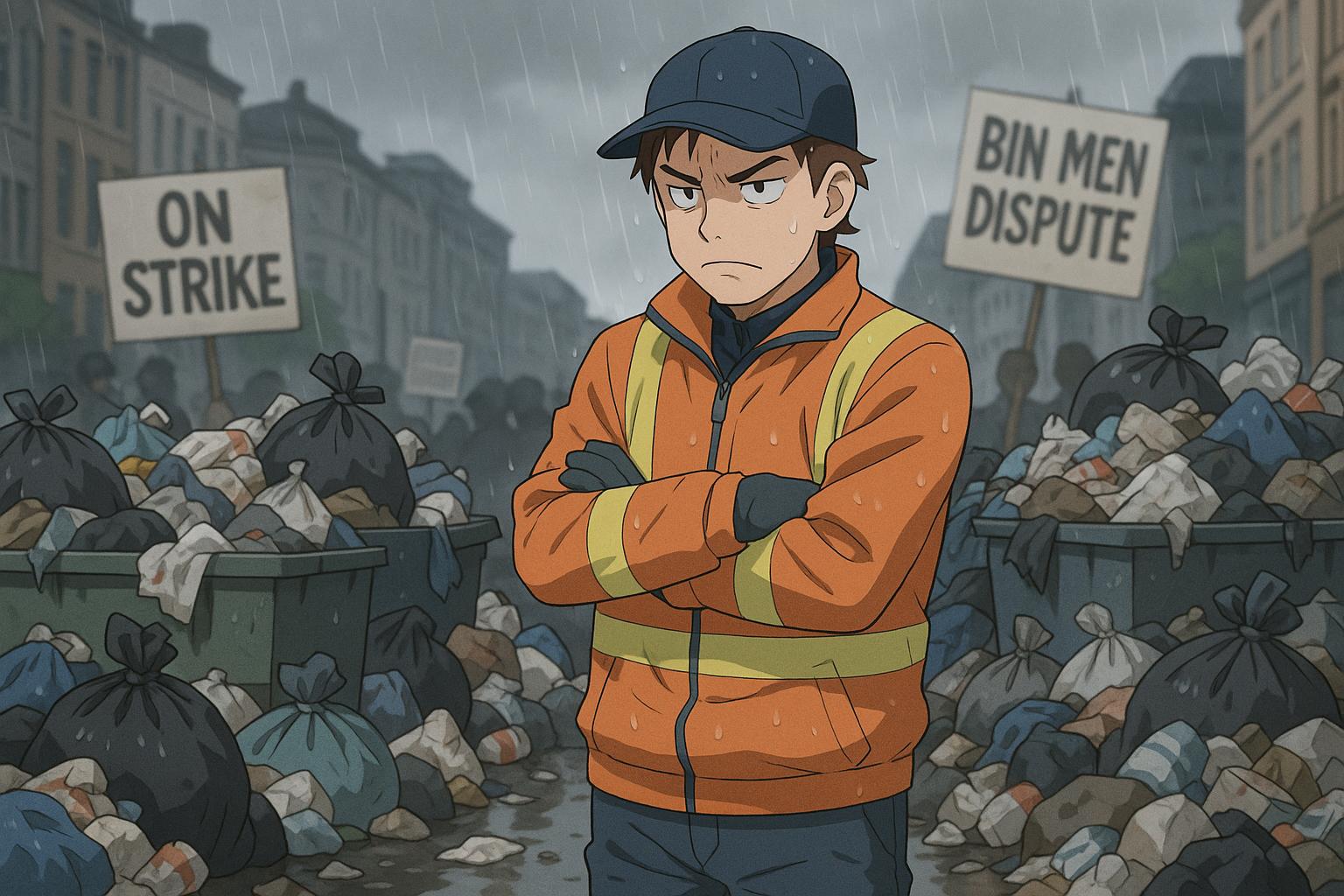Birmingham City Council is currently grappling with a significant waste management crisis, exacerbated by an ongoing strike initiated by bin workers on 11 March. This industrial action stems from a dispute over proposed pay cuts that the trade union Unite claims could cost workers up to £8,000 annually. Despite the council's assertion that it is re-grading roles to prevent equal pay disputes, frustrations have boiled over as rubbish accumulates in the streets, impacting residents and local businesses profoundly.
The strike has now entered its eleventh week, with a spokesperson from the council noting that only a handful of waste trucks have successfully left depots in recent days, primarily to address waste deemed a fire hazard at high-rise flats. The operational limits placed by picket lines have significant implications, with reports indicating that roughly one vehicle is able to depart per hour, leaving around 17,000 tonnes of waste uncollected. Birmingham’s rubbish problems are not just an inconvenience; they are raising serious public health concerns, including reports of a norovirus outbreak in care homes attributed to deteriorating sanitary conditions.
In light of mounting rubbish and health risks, the council previously declared a major incident in March. This decision was prompted by rapidly escalating rubbish levels across the city and led to police powers being invoked to facilitate the departure of waste vehicles from depots. However, a spokesperson for West Midlands Police has stated that the threshold for ongoing intervention is no longer met, although a police presence continues to be maintained at various depots.
Amid this backdrop, the council is trying to navigate its significant financial difficulties, including a historic liability for equal pay settlements which has left it with a strained budget. Over the past two decades, Birmingham City Council has paid out over £1 billion to settle equal pay claims, and in 2023, it faced an effective bankruptcy due to spiralling costs from a software contract. The financial pressures have hindered efforts to invest in modernisation initiatives, such as upgrading waste collection fleets and enhancing recycling processes. Although the council has attempted to offer self-service waste disposal trucks and encouraged businesses to opt for private waste collection, these measures have fallen short of resolving the ongoing crisis.
The union has been critical of the council’s handling of the situation, with Unite General Secretary Sharon Graham emphasising the unfairness of pay cuts and job downgrades for workers responsible for essential waste collection roles. The local population has expressed frustration as rubbish piles become an eyesore, while service cutbacks have been imposed even as council tax has risen.
As negotiations between the council and Unite continue, the prospect of a resolution appears uncertain. Union members recently rejected a council proposal, citing it as inadequate in addressing their financial concerns. Birmingham City Council maintains that it is committed to finding a workable compromise, one that respects the financial constraints it faces while addressing the legitimate grievances of its workers.
The impact of this strike goes beyond Birmingham, highlighting broader issues regarding workers' rights and fair remuneration in the face of financial strain. As the city works to restore normalcy to its waste management services, both sides remain at an impasse, with the health of residents and the work conditions of bin workers hanging in the balance.
Reference Map:
- Paragraph 1 – [1], [3]
- Paragraph 2 – [2], [5]
- Paragraph 3 – [1], [4], [6]
- Paragraph 4 – [1], [2], [3], [4]
- Paragraph 5 – [5], [7]
Source: Noah Wire Services
